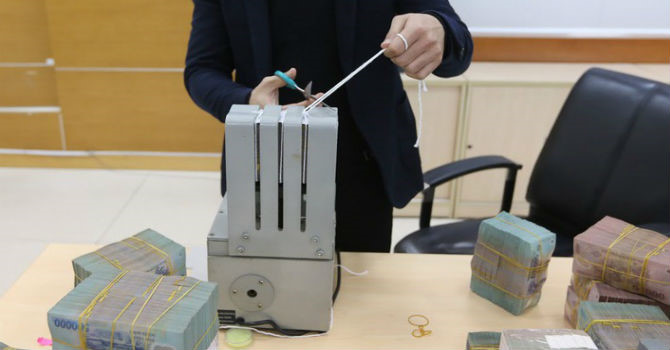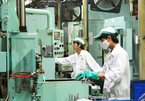VNBA said over the last year, the association sent documents to agencies urging them to take action to help raise capital of the banks in which the state holds a controlling stake.

The four state invested banks, namely Vietcombank, VietinBank, BIDV and Agribank, have restructured the portfolio of risky assets, issued secondary bonds to increase 2-tier capital to improve the capital adequacy ratio, and applied many other measures. However, they still do not meet the requirements on CAR set by Basel II.
A report says the CAR of the big four is 9.4 percent, very close to the required minimum, but it is still lower than the average ratio of the domestic banking system, at 13 percent.
VNBA pointed out that the four banks won’t be able to increase capital themselves, but need support from the state to implement the plans they have drawn up.
|
A report says the CAR of the big four is 9.4 percent, very close to the required minimum, but it is still lower than the average ratio of the domestic banking system, at 13 percent. |
In the immediate time, the banks want to get permission to retain annual profits, or pay dividends in shares to increase capital.
The idea of retaining profit and not paying dividends once was rejected by the Ministry of Finance, which represents the State, the major shareholders of the banks.
Economists warned that the delays will affect the supply of capital to the national economy. They said the capital increase is ‘extremely urgent’ for VietinBank.
Since 2014, the bank does not have additional capital to increase chartered capital. It is now the slowest among the big four in implementing plans to raise capital.
Because of this, VietinBank saw a modest credit growth rate of 6 percent, the lowest growth rate in the last 10 years, and it cannot obtain credit growth this year.
VNBA emphasized the important role of the four banks in the national economy. They now have total assets and outstanding loans accounting for around 50 percent of the market share of the whole banking system.
At the 2019 annual shareholders’ meeting held last April, VietinBank submitted to the shareholders two plans – paying 2018 dividends in shares (VND2.99 trillion) and retaining all the profits (VND2.997 trillion) to increase capital.
VietinBank’s chair Le Duc Tho stressed that incresing capital is urgent, because the bank will then be able to satisfy rrequirements for growth.
As for Vietcombank, its chair Nghiem Xuan Thanh said though the bank issued shares to specific investors in 2018, Vietcombank still needs much more capital to implement the restructuring plan and satisfy requirements for sustainable development.
Thanh Lich

Startups having a hard time accessing capital
Vietnam has about 3,000 innovative startup businesses or startups. However, not many startups are successful in calling for investment. It is estimated that less than one-third of enterprises have acc

Japanese capital inflow’s new trend
After five years of decline, Vietnam’s processing and manufacturing sector has begun to receive a substantial volume of investment capital from Japanese enterprises.
 If the four state invested banks cannot raise their charter capital, the safety of their operations will be affected, according to the Vietnam Banking Association (VNBA)." itemprop="description" />
If the four state invested banks cannot raise their charter capital, the safety of their operations will be affected, according to the Vietnam Banking Association (VNBA)." itemprop="description" />